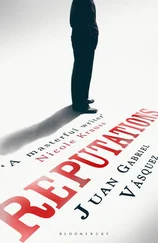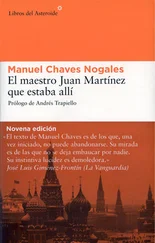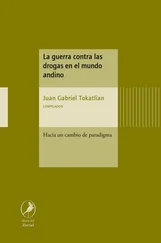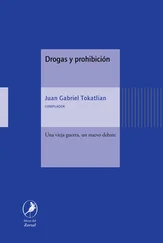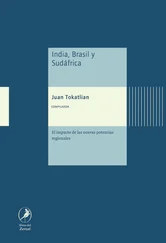“All that’s past. The only thing—”
“All right, all right,” said Xavier. “Spare me the philosophizing, I beg you.”
He can’t stand seeing us, thought Georges, he can’t stand seeing what we’ve attained. They went their separate ways. In front of the southern edge of the forest was a pasture where three Limousin cows were grazing. Georges looked to the right and to the left: Xavier, hunched over, was heading to his position with Stalky trotting eagerly at his side, and the complicity or harmony that had developed between the dog and his owner over the years was plain to see; on the side nearest the road, the crowd of younger hunters broke the line of the horizon. The vision of the armed silhouettes reminded Georges of those images of men disembarking in Normandy during the war. He walked patiently toward the spot he’d been assigned. He was, for the first time since the day began, truly alone. He was grateful. He stopped, inhaled the cold air, and all the mountain smells, manure and pine, rain and damp moss, washed over him like a wave. Every once in a while, an isolated engine broke the silence, and the only noise that Georges heard, while he settled down, was the sound of the joints of his portable stool as he unfolded it over the dead leaves. Soon, as he loaded his rifle and shotgun, he heard the echo of the metals colliding and, when he finally sat down, putting his gun across his lap and leaning his rifle against an oak tree, the uneven chorus of horns that announced the beginning of the hunt. Suddenly, the image of a Flaubert book and a train ticket to Nancy came to mind.
—
THE DAY GEORGES TURNED FIFTY was also Jean Moré’s initiation to the hunt, Jean having killed his first boar that very morning. Charlotte organized a gathering at home for friends of the family and some fellow hunters. The boar’s head rested on its side on the lawn, beside the stump of an oak tree. The hunters shouted, let’s see him wearing the head, put it on, and Georges eventually lifted the head and set it on Jean’s head like a hat. Not much blood spilled, but enough to give Jean’s black hair the look of a cow’s placenta, and the baptism was complete. Georges would later think that eating with hands dirty with boar’s blood wouldn’t have been so bad. But, at that moment, it hadn’t occurred to him to act any other way. He went inside through the kitchen door and his eyes took a couple of seconds to adjust to the darkness. He found Charlotte sitting on the floor beside the gas stove, surrounded by pheasant feathers. She had her apron on; she was not crying, but she was panting as if she’d been running. On top of the plastic tablecloth was the pheasant they’d be eating later, its throat slit and innards now cleaned out. On the other side of the bird, the Flaubert book: a blue hardback with gold lettering.
“I was going to leave you,” said Charlotte.
She seemed convinced that the world would not be transformed after those words, or that she’d be able to fight against the transformation. Like a puzzle, everything fit together in Georges’s mind. But it was too late (a thousand little signs proved to him) for reproach or jealousy, for confrontation or a scene.
“He gave you that book?”
“Yes. With the train tickets.”
“To where?”
“France.”
Georges looked out the window. Xavier and Jean were playing with the boar’s head. The most obvious strategy for the adulterer was to show up at social gatherings where his lover would be. That way he gave the impression of not having anything to hide and, therefore, that nothing was actually going on.
“I thought I was pregnant,” said Charlotte. “We were going to live in Nancy until the baby was born.”
Georges looked at her chestnut hair and the vertex on which the button of her blouse joined the line of her breasts. Having a child with Xavier in another country was a way of beginning a new life. Later Charlotte and Xavier would have married. Everything would have gone back to normal, and they might even have returned to Belgium. But Charlotte wasn’t pregnant. She’d chosen not to run away; she didn’t need a new life.
“I’m staying,” she said. “I’m staying with you.”
“Are you sure?”
“You don’t know how much I’ve suffered. I don’t want any more of this. I want us to go back to being ourselves.”
“But we haven’t stopped being ourselves, Charlotte. You’ve lied very well. You have an admirable talent.”
“No sarcasm, please.”
“Also, you’re not young. This is no time to be having babies.”
“Let me stay.”
“How long has it been going on?”
“I don’t know,” said Charlotte. “Three, four months.”
“Exactly.”
“I don’t know, dear.”
“Of course you know. That book is an anniversary gift, I’ll bet you anything. Madame Bovary . He’s not what you might call subtle, our friend Xavier.”
They did not embrace. They did not kiss, not even like friends. But their marriage was safe, even if just for this moment. The next step would be to work at it, work tenaciously. Georges loved her, and that certainty should be enough for him to go back with Charlotte, for that complicated return to the body of a woman he’d never left. That Charlotte was not young, at forty-five, was false, but that didn’t prevent them from feeling the excitement of the surprise of realizing they’d stay together, that they had their whole lives ahead of them.
—
TO FRIGHTEN THE PREY, to force them to leave the woods and expose themselves to the hunters’ sight, each beater had developed a particular and private voice that Georges, over time, had begun to be able to distinguish. He made an effort, a sort of personal challenge, to discern them in the air. That oooooooo with hands clapping was from Guillaume Respin; Frédéric Fontaine shook the bushes with a polished stick and shouted ah-ah-ah-eeeee . Catherine had decided, quite a while ago, to do without onomatopoeia.
“Get a move on, brutes!” she shouted. “Foutez le camp!”
But no animal escaped down this side. With a bit of luck, the hunters on the other side would trap at least one boar. Georges looked up, but the pigeons were flying too high: it would be arrogance for a man whose aim was not as sure as it used to be to attempt such a shot. Nevertheless, he pointed his rifle at the gray sky and looked through the telescopic lens, dusty and smudged with fingerprints: years ago he would have tried, he thought calmly, his finger caressing the trigger. He lowered the gun and listened to the beaters; the commotion of branches breaking under their feet didn’t drown out that other commotion of their threats. It was possible to follow those movements among the trees, because the boundary of the woods was clearly established and the way the wind played with the sounds intensified the voices as soon as the beaters came around the western corner.
Then three shots rang out.
“Tiens,” Georges said to no one. “Someone’s had some luck.”
He tried to relive the sound of the shots, and smiled as he guessed someone had fired a shotgun and was going to be admonished by Jean. He imagined the prey, made bets with himself: a young boar, an out-of-season deer, a banal rabbit that had made someone react too quickly? He was attentive to the rest of the noises. The beaters were covering the second flank of the woods and the dogs barked as if to cut through the cold.
A fourth shot rang out.
Georges inhaled deeply, because ever since he was a little boy the smell of gunpowder in his nostrils, in case by chance the wind was blowing in his direction strongly enough after a nearby shot, had fascinated him. He couldn’t smell anything this time. Instead, he was surprised to hear the three horn blasts signaling the end of the hunt.
Читать дальше

